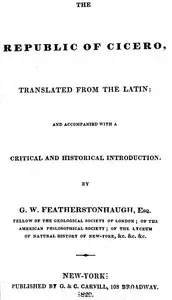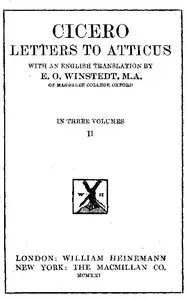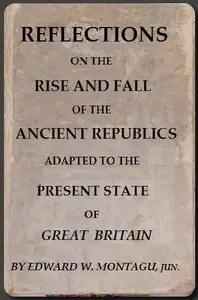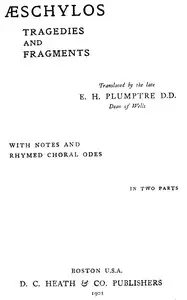"De Amicitia, Scipio's Dream" by Marcus Tullius Cicero is a philosophical treatise written in the early 1st century BC. This work delves into the nature of friendship through a dialogue that reflects upon the enduring ties between individuals, encapsulated in the friendship between Laelius and Scipio Africanus. Cicero's exploration examines various aspects of friendship, its moral foundations, and its importance in a well-lived life. At the start of the dialogue, Laelius, mourning the death of Scipio, reflects on their deep friendship and the loss he feels. In discussing their bond, he addresses the nature of true friendship, highlighting that it can only exist among good men. Laelius articulates the principles that underpin friendship, arguing against the superficial view that friendships are merely transactional or utilitarian. He affirms that genuine friendship arises from virtue and character rather than need, setting the stage for a comprehensive exploration of the ethical duties and expectations within such relationships. As the conversation unfolds, Laelius offers insights into the essence of friendship, its potential for mutual support during challenging times, and the wisdom required to navigate the complexities of interpersonal bonds. (This is an automatically generated summary.)

De Amicitia, Scipio's Dream
By Marcus Tullius Cicero
"De Amicitia, Scipio's Dream" by Marcus Tullius Cicero is a philosophical treatise written in the early 1st century BC. This work delves into the natu...
Marcus Tullius Cicero was a Roman statesman, lawyer, scholar, philosopher, writer and Academic skeptic, who tried to uphold optimate principles during the political crises that led to the establishment of the Roman Empire. His extensive writings include treatises on rhetoric, philosophy and politics. He is considered one of Rome's greatest orators and prose stylists and the innovator of what became known as "Ciceronian rhetoric". Cicero was educated in Rome and in Greece. He came from a wealthy municipal family of the Roman equestrian order, and served as consul in 63 BC.


















